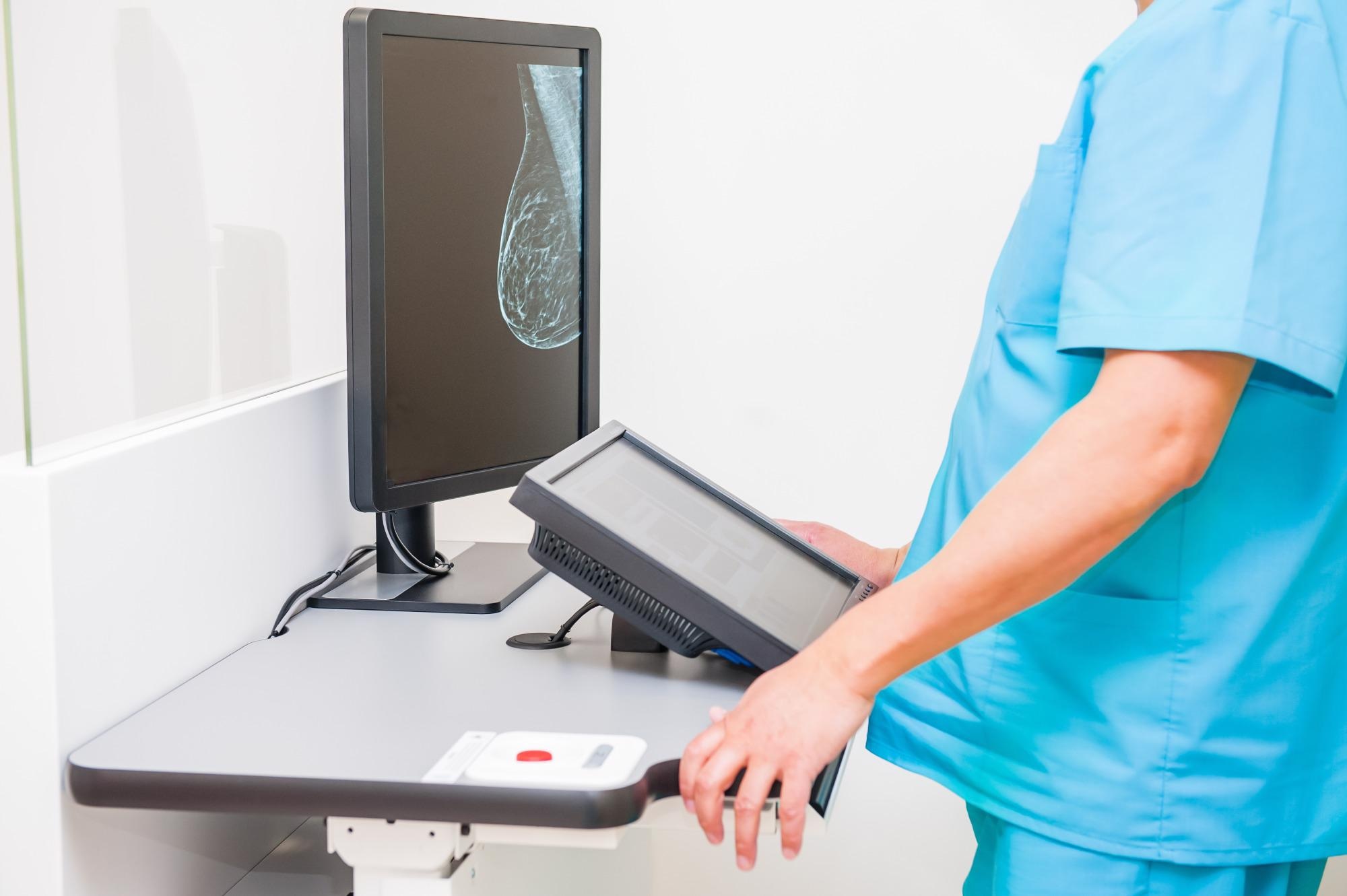
Image Credit: Shutterstock.com / Okrasiuk
Professor for AI and Health AI Faculty Lead at MIT Regina Barzilay has discovered a unique application of "natural-language processing" a subfield that bridges linguistics, computer science, and artificial intelligence and applies algorithms to textual data.
As a breast-cancer survivor herself, Barzilay thought about shifting her research and applying artificial intelligence risk models in clinical practice. So, Barzilay and one of her students Adam Yala developed an AI that has an uncanny ability to detect whether or not breast cancer will develop in patients.
"The responsible deployment of novel AI requires careful validation across diverse populations. To this end, we validate our AI-based model, Mirai, across globally diverse screening populations," explains Barzilay in the paper recently published in the Journal of Clinical Oncology.
Barzilay and her team applied the AI, which they have named Mirai, to an analysis of a mammogram's byzantine pixels, which was then cross-referenced with thousands of previously taken mammograms from which Mirai made its predictions.
Training Mirai
Mirai is an innovative combination of tech and health care that could radically change the future of breast cancer by saving millions of lives without the need for intensive therapeutic treatment. The researchers trained Mirai by feeding the algorithm more than 200,000 Mass General mammograms from a pool of people who went on to both develop and not develop breast cancer.
From this data Mirai would scan each of the mammograms and from all the data make its prediction, the team then fed the actual result into the algorithm and depending on if this aligned with the prediction or not, Mirai would either be rewarded or penalized.
Subsequently, Mirai was able to identify the future potential of developing breast cancer drawing from the pre-existing mammograms. Once the training of Mirai was complete the team then progressed onto the next phase of the study.
The researchers collected a further 129,000 mammograms taken from 2008 to 2016, from 62,000 patients in seven hospitals in five countries — Brazil, Israel, Sweden, Taiwan, and the United States — and from there, Mirai was tasked with making its predictions.
"We evaluated Uno's concordance-index for Mirai in predicting risk of breast cancer at one to five years from the mammogram.
Regina Barzilay, Professor for AI and Health AI Faculty Lead, MIT
Over the course of the study Mirai predicted, on average, around 76 of every 100 cases, which translates to millions of lives in the real world. For results showing above 2.5% on a five-year cumulative risk score the AI automatically recommended further screening such as an MRI or biopsy.
Transforming Preventative Care
While the researchers did not train Mirai to distinguish between cancers of varying degrees of aggressiveness, the results are a promising step forward in the diagnostics field. Presently, radiologists are limited to how much they can disseminate from the mammograms as markers such as increased breast density are not always reliable as healthy women can also have dense breasts.
However, Mirai can "see" much more from the data and finetune its predictions as a result which enhances current approaches and could even improve pre-existing traditional race scores to take eliminate racial bias as seen with other models.
This is encouraging as breast cancer disproportionally affects some ethnic and racial groups and could therefore transform preventative care across the board. Mirai was able to reflect real-world statistics. Therefore, introducing more accurate risk scores led to the development of methods to protect the health and well-being of potential breast cancer patients.
Barzilay and her team hope to get Mirai to the next stage of approval so real-world rollout could be possible in the near future; trials have been planned in Winston-Salem N.C. where Mirai will be used on as many as 150,000 patients who will have mammograms.
References
1. Yala, Adam et al. 'Multi-Institutional Validation of a Mammography-Based Breast Cancer Risk Model'. Journal of Clinical Oncology. November 2021. DOI: 10.1200/JCO.21.01337
Disclaimer: The views expressed here are those of the author expressed in their private capacity and do not necessarily represent the views of AZoM.com Limited T/A AZoNetwork the owner and operator of this website. This disclaimer forms part of the Terms and conditions of use of this website.